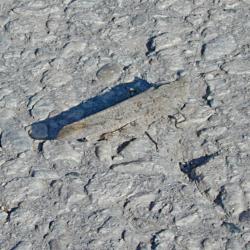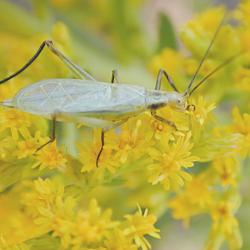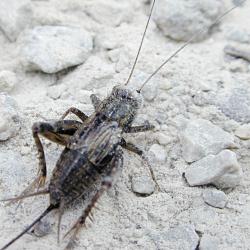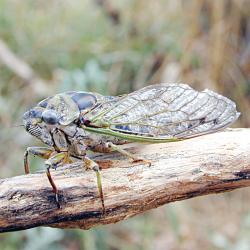|
|
| Grasshoppers, Crickets and Cicadas |
 Carolina Grasshopper
(Dissosteira carolina)
Description:
Large, stone-coloured grasshopper with short antennae and large wings.
Hind wings, only visible in flight,
are black with a pale yellow border.
Escape flight is fluttery and the path is zig-zaggy.
Habitat:
Quite common in fields, dry meadows, and best seen when flushed off dirt trails.
Length: 30 mm
Adults: June - October
|
 Tree Cricket
(Oecanthus sp.)
Description:
Pale green, slender cricket with translucent wings and long antennae.
Males have wider wings than females, and use them to sing to attract female.
Song is a continuous trill.
Docile and easily observed close-up.
Adults are predators on aphids and small caterpillars.
Habitat:
Usually encountered in vegetation, such as trees, shrubs and tall wildflowers.
Length: 15 mm
Adults: June - October
|
 Field Cricket
(Gryllus pennsylvanicus)
Description:
Black, robust cricket which has an oversized, helmet-shaped head.
Adult males sing day and night in late summer and early fall.
Habitat:
Common in dry meadows, fields, roadsides.
Length: 20 mm
Adults: July - October
|
 Dogday cicada
(Tibicen canicularis)
Description:
Large black insect with transparent wings, prominent, bulging black eyes.
Normally heard rather than seen in late summer when the adult males sing.
The loud song is described as a buzzing or whining which rises and falls in intensity.
In flight, the wings clatter noisily, and they appear top-heavy.
Habitat:
Fields, woodland edges.
Length: 30 mm
Adults: July - October
|
|
|
|
